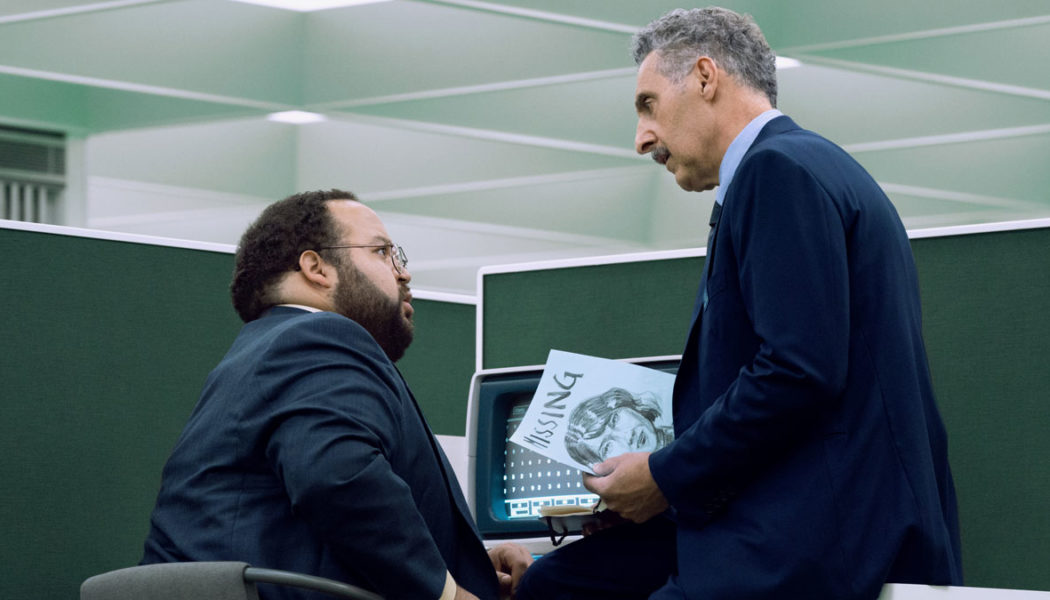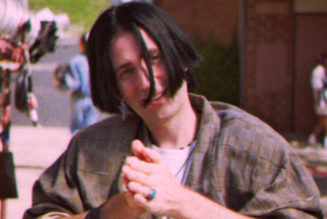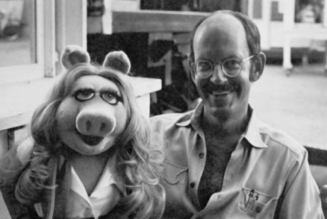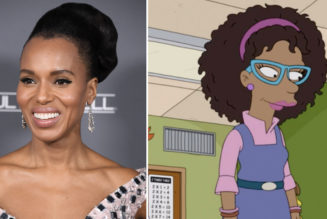Season 2 of Severance is premiering years after the first one, so let’s begin this review with a reminder of what the Emmy-winning sci-fi dramedy is about: Set in an alternate universe lush with retro technology, the Apple TV+ show focuses on the employees of megacorp Lumon Industries, many of whom undergo a procedure which severs their working consciousness from their day-to-day existence.
Lumon employees show up for work each day and leave each night with no memory of what they spent their day doing — at least from their perspective, as the “outie.” Their “innie,” meanwhile, lives a whole separate life entirely within the confines of the Lumon offices. At least, that’s the way it’s supposed to work… presuming the innies are content with their lot in life.
This extreme take on work-life balance wouldn’t feel out of place as an installment of Black Mirror. Yet, limiting its dramatic scope to a single hour of television would be a shame, because as the second season reveals, this premise proves powerful enough to unlock a whole new level of thinking about the world. In fact, writing about Severance proves challenging because it’s not just a satire of corporate culture. Instead, the show is a microcosm of so much about the human experience — a complicated love story that also has a lot to say about what it means to be alive.
Related Video
That’s possible primarily through its character-forward storytelling, with a dream ensemble that confirms Adam Scott as a leading man for the ages. As Mark, the Lumon employee who’s more valuable to the company than he realizes, Scott nails the distinctions between his character’s innie and outie personas. More importantly, he understands how to play both sides in ways that reflect their innate connection.
Meanwhile, Britt Lower gets a different challenge this time around — initially introduced as Mark’s colleague Helly, the Season 1 finale revealed that Helly’s “outie” is the cold-hearted Helena Eagan, a high-level Lumon executive. In Season 2, we learn a lot more about Helena, and Lumon, and all of these characters, including fellow drones Dylan (Zach Cherry) and Irving (John Turturro), their former boss Harmony Cobel (Patricia Arquette) and their newly promoted boss Seth Milchick (Tramell Tillman). Oh, and don’t forget Mark’s wife Gemma (Dichen Lachman), who the Season 1 finale revealed had been trapped inside Lumon for the two years since her presumed death in a car accident.
Season 1 of Severance ended with the Innies of Macrodata Refinement in open revolt against their masters, having found a way to activate their consciousnesses while their Outies were in the “real world.” Season 2 takes its time to explore the consequences of their rebellion in ways that at times prove a little frustrating; in general, the season falters a bit when it comes to the delicate dance of playing with viewer expectations.
</p>
<p>” data-medium-file=”https://www.wazupnaija.com/wp-content/uploads/2025/01/severance-season-2-gets-even-more-existential-and-stylish-review.jpg&w=300″ data-large-file=”https://www.wazupnaija.com/wp-content/uploads/2025/01/severance-season-2-gets-even-more-existential-and-stylish-review.jpg&w=1024″ src=”https://www.wazupnaija.com/wp-content/uploads/2025/01/severance-season-2-gets-even-more-existential-and-stylish-review.jpg” alt=”Severance Season 2 Review Zach Cherry John Turturro” class=”size-full wp-image-1457000″ width=”1200″ height=”675″></p>
<p id=) Severance (Apple TV+)
Severance (Apple TV+)
That’s another way of saying that if an episode ends on a dramatic cliffhanger, don’t anticipate that cliffhanger getting resolved at the beginning of the next episode, or by the middle of it, or even by the end. Characters drift in and out of the narrative almost at random, it sometimes seems, including “series regulars” whose names are in the main credits but maybe appear in a handful of episodes. And if your enjoyment of the series depends on getting answers to all of the biggest questions, Season 2 will not excite you.
However, even when this show’s questions are baffling, even when the supposed answers to those questions are baffling, Severance remains fascinating. A huge factor in that, beyond the performances, are the aesthetics: Lead director Ben Stiller (who helmed five of this season’s 10 episodes) has always had a vibe that can be best summarized as “chilly,” with a love of stark white and snowy vistas that fits perfectly with the show’s themes. These are the most beautiful windowless hallways you’ve ever seen in your life. Seriously.
Season 1 of Severance felt propelled primarily by the mysteries at its core, especially when it came to who these people were, outside of the office. Season 2 manages to provide enough answers to keep at least this critic from throwing anything at the screen, while digging even deeper into the implications of this concept. For as many huge ideas and topics as Severance explores, the most important mysteries all are rooted in these characters.
It’s hard not to love a show this beautiful and human, one that dives into both existential dilemmas and wackadoo dance breaks depending on its mood. Severance strikes such a powerful chord because it’s so successful at pointing out the false idols created by corporate culture. But more importantly, it doesn’t lose sight of what makes life such a strange and profound experience — in or out of the office.
Severance Season 2 returns January 17th on Apple TV+.









